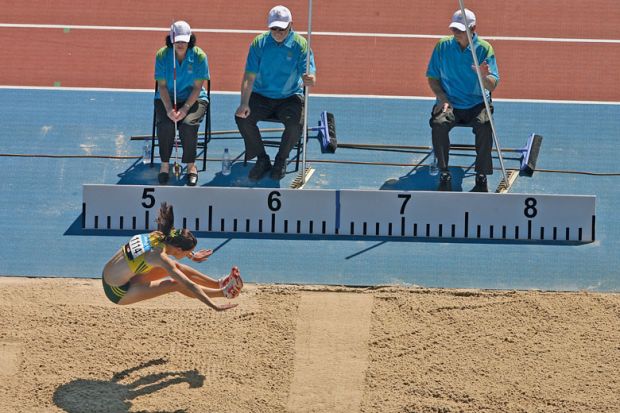Universities have defended Australia’s new research quality requirements after the country’s landmark review of higher education recommended that they be scaled back.
The federal government imposed tough research benchmarks on the sector in 2021, following a review of provider category standards by former Queensland University of Technology vice-chancellor Peter Coaldrake. To retain the right to call themselves universities, established institutions must conduct “world-standard” research in at least half of the broad fields of education they teach.
The Universities Accord panel believes that rules such as this “act as roadblocks to specialisation”. Its final report says the proposed tertiary education commission should “consider relaxing the current requirement to meet benchmark levels of research”.
The panel calls for “creative thinking” about institutional diversity, including modifying the provider category standards “to allow for universities which are teaching only”.
But institutions potentially in the firing line of the new rules say they should not be watered down. University of Divinity vice-chancellor Peter Sherlock said winding back the research benchmarks would be a “negative” move.
“Research is critical to high-quality education at university level, ensuring students are receiving cutting-edge education from world experts,” he said. “[This] principle…has been in place in Western education systems for as long as there have been universities.”
A spokesman for Charles Sturt University (CSU) said Australian universities “should be producing world-standard research in the majority of their fields of education, both to ensure a quality student experience and to contribute to the knowledge economy that will determine our nation’s future”.
CSU was the first university to face assessment under the new rules. Its registration fell due last April, followed by Divinity in August. The Tertiary Education Quality and Standards Agency (Teqsa) is yet to decide on either institution’s fate, although it has re-registered four research-intensive universities whose renewals were due after CSU’s.
Teqsa declined to comment on the delayed re-registrations but said it typically began discussions with institutions about a year before their certification expired.
CSU was one of four universities that had their research judged world standard in only a minority of fields during the most recent national research evaluation exercise, the 2018 Excellence in Research for Australia (ERA) assessment.
Its spokesman said he did not believe the research requirements had delayed the re-registration. CSU expected its registration to be renewed “soon”, having supplied additional information requested by Teqsa nine months ago.
Professor Sherlock said Divinity had been asked for information about its research performance nine months after submitting its initial application, and a month after the renewal deadline. “We do not anticipate having an outcome for our application any time soon,” he said.
He said he understood that Teqsa’s “limited resource capability” had been tested by an “increased volume of applications” in late 2022, ahead of the expiry of its Covid-era fee waiver. The “real” challenges around research, he added, were funding it adequately and finding a “proportionate” way of evaluating it.
Teqsa said it had held “discussions with the sector about research requirements”, but acknowledged that there was “no single approach to assessing research quality”. This task has been made harder by the scrapping of ERA.
CSU said it expected to meet the research quality requirements. Federation University, whose registration is due for renewal next month, said it was confident of satisfying the research requirements and did not expect them to delay its registration.




